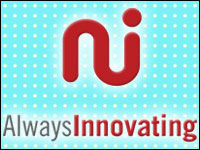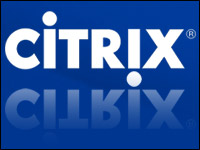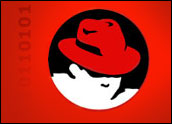
Linspire has become the latest Linux vendor to sign a deal with Microsoft, the two companies announced Wednesday. The pact promises a closer working relationship between the two software makers. For consumers, it brings greater interoperability and a technical collaboration that also includes intellectual property assurances, Microsoft said.
“Delivering interoperable solutions for our customers is an important priority,” said Bill Hilf, general manager of platform strategy at Microsoft. “Through our ongoing collaborative relationships with commercial open source companies, we are demonstrating our commitment to delivering the value and increased interoperability customers want.
“Covering features from document formats to instant messaging and digital media, our announcement today with Linsipire is an important step for our mutual customers,” he added.
Share and Share Alike
Microsoft and Linspire will collaborate on a variety of technical projects, the companies said, designed to enhance interoperability and expand the functionality of Linspire.
In conjunction with Microsoft, Novell and a host of other companies, Linspire will work to develop and distribute open source licensed translators so that OpenOffice and Microsoft Office users can better share documents. Linspire will also license Microsoft’s RT Audio Codec, a move intended to allow voice-enabled interoperability between the Linux vendor’s Pidgin instant messaging client and both Microsoft Office Communicator and Windows Live Messenger.
Linspire will now support Microsoft’s latest iteration of its Windows Media 10 audio and video codec so that Linspire and Windows users can better share digital media files. Finally, Linspire users will now have their choice of Arial, Georgia, Times New Roman or Verdana fonts for their documents. The deal also includes licensing for Microsoft’s TrueType fonts.
In addition to the technological additions, Microsoft’s Live Search service will be the default Web search engine in Linspire 5.0. Most importantly, an intellectual property assurance agreement between the two companies will protect Linspire from any legal actions on Microsoft’s part relating to possible patent infringements.
One caveat is that only users who purchase Linspire will have access to these technologies. Users of Freespire, the no-charge version, will not support the technologies or receive patent protection.
“This is another set of options to add to the Linux desktop,” Laura Didio, a Yankee Group Fellow, told LinuxInsider. “Linux has made incredible inroads in the server area and the embedded device area. But they have not really had the same level of success to date in the desktop arena and its all about the applications.”
Sleeping With the Enemy?
The tie-up between the two companies is one of the more surprising developments in Microsoft’s recent spate of agreements with distributors in the open source community. The two companies have faced off in court in a trademark infringement case filed by Microsoft in 2001 over Linspire’s original name, Lindows, and its first Linux operating system, the user interface (UI) of which was said to be a take-off of the Windows’ UI.
In 2004, a US$20 million payment from Microsoft brought the dispute to a satisfactory end for both companies. Lindows, a little richer, changed its name to Linspire, and Microsoft had successfully protected the “Windows” name.
Kevin Carmony, the Linspire’s president, said the partnership with Microsoft would “bring even more choices to desktop Linux users, and together, offer a ‘better’ Linux experience.
“Just as Steve Jobs announced in 1997 that ‘the era of setting this up as a competition between Apple and Microsoft is over,’ I too believe it’s time for Linux to do the same. Rather than isolating Linux, I believe we need to understand, as Apple did in 1997, that Linux exists in an ecosystem and must work with and interoperate within that ecosystem.
“As unpopular as it may appear to some, Linspire is willing to take a lead in this effort. Some people booed Steve Jobs back in 1997, but if you trace the history of his announcement, I think it was an incredibly smart move for both Microsoft and Apple, issuing a new era for both,” he continued.
A Growing Cohort
The Linspire hookup is just the latest Linux vendor to join Microsoft’s fold. The software giant kicked off its wave of Linux deals with Novell in November. Despite an outcry from some members of the Linux community, Microsoft went on to form collaborative partnerships with JBoss, Xandros and XenSource.
Each tie-up included cross-licensing deals with the Redmond, Wash.-based software maker, as well as patent licensing. Microsoft has also recently signed agreements with LG, Samsung, Zend Technologies and Fuji Xerox.
“All these deals are cross-licensing deals; Microsoft has to pay them for the use of their technology too,” Didio said. “The trend is toward signing these agreements no matter who you are. [Patent] disputes are time consuming, they drain the cash coffers and they take the focus away from the business.
“The users benefit and the vendors benefit too because they are not fighting over patents in court,” Didio concluded.




















































